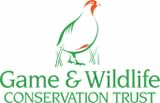2018-12-21 |
GWCT to Launch New Conservation Course
The Game and Wildlife Conservation Trust’s Allerton Project is launching a new course aimed at agronomists, farmers and land agents on farmland conservation management.
The BETA Conservation Management course provides a qualification that covers a wealth of practical expertise in protecting and enhancing natural resources as well as establishing and managing conservation areas.
Run across three days, the core course will set environmental management in the context of commercial farm practice and is timely as environmental stewardship becomes an increasingly important part of overall farm and land management post Brexit.
The course focuses on farmland wildlife habitats, farming and the wider environment, soil management and the water and environmental protection. It also covers a full-range of issues such as cross-compliance, environmental management, conservation or countryside stewardship agreements.
An understanding of why these issues matter within a commercial farming context and how they can contribute to profitability of a farm business will be delivered to the candidates.
There are six courses in 2019 which are split into three sections. The core course will be run over two days with the third day covering the agricultural specialism. There will be a further one-day course for the environmental specialism and an exam day for all modules. The agricultural specialism is designed to outline aspects of integrated farm management and the environmental specialism builds on management of the natural environment for both conservation and commercial use.
“The team is really looking forward to delivering the material as farming expects to face some serious challenges in a year’s time,” said organiser Amelia Woolford.
The new course sets environmental management in the context of commercial farm practice and is timely, as environmental stewardship will become an increasingly important part of overall farm and land management post Brexit.
The Allerton Project Team, working with other core trainers, have been instrumental in helping BASIS with a review of the course and upgrading the syllabus. The team has successfully delivered the original course since its inception with over 300 people completing and passing the exam.
The core part of the course covers four key areas: farmland wildlife and habitats – conservation and improvement; farming and the wider environment; soil management; and water and environmental protection.
In each area, candidates will learn about the key principles to both protect environmental features and to implement practices that will encourage improvements in flora, fauna, soil health and water quality. The course delivers an understanding of why these issues matter within a commercial farming context.
The revision of the syllabus has also seen the introduction of two specialist modules focusing on Agricultural and Environmental delivery. These specialist modules will also be available to sit at the Allerton Project where aspects of the course will be demonstrated alongside the project’s many years of research and out on a working farm.
The agricultural specialism is designed to outline aspects of integrated farm management. It covers a wide variety of topics including but not limited to importance of pollinators and predatory insects, soil biology and practical pest management plans.
The environmental specialism builds on management of the natural environment for both conservation and commercial use. It will include identification skills, landscape management planning and habitat structure.



